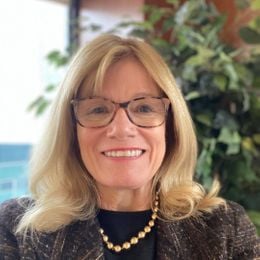Superheroes of Caregiving Need Better Support
More resources are vital to lighten the load of family caregivers
Rosemary Rawlins feels a deep sense of gratitude for what she learned from her aging parents while providing them with help and comfort. Her father had dementia and her mother suffered with COPD. “My parents brought me into the world,” Rawlins recalls, “but also taught me how to leave it with dignity.” She is a family caregiver.
Being a caregiver can be deeply rewarding, but it can also require significant, even heroic, sacrifices. In Rosemary’s case, there was the hasty, chaotic relocation of her parents from New York to her community in Virginia after her father’s aneurysm. The ongoing advocacy with his assisted living facility when his behavior became erratic and violent. The middle-of-the-night visits to the emergency room.
A Superhuman Feat
Rosemary Rawlins is one of more than 30 million family caregivers of older adults in the United States, one of a legion of modern-day superheroes.
As president of the John A. Hartford Foundation, which is dedicated to improving the care of older adults, I believe that we should celebrate and thank these heroes for going above and beyond. They do both simple, everyday things (like visiting and talking to their family members) and they shoulder more complex tasks (like managing transportation, medications, insurance claims and even hospital-level interventions like wound care), often without any training or support.
The AARP Policy Institute estimates that family caregivers provide unpaid care worth $470 billion annually. This contribution is generally made freely, with love, for spouses, parents, siblings and friends.
But let’s be clear: there are costs. There are the financial costs, in spent-down savings, compromised retirement options and lost productivity at work, sometimes even foregone careers. Then there are the health costs. Family caregivers are at much greater risk for depression, heart disease, and a whole range of ongoing health problems, and their self-care is often overlooked.
Imagining a Different World
As quiet superheroes, some caregivers struggle against enormous obstacles to save the day, day after day, delivering the care their family members need. But what if, instead of being required to summon superpowers to accomplish this, our caregivers and their families had a super system of programs and resources that met their needs?
Imagine if they had reliable access to:
- Better transitions of care, to ensure families are truly supported and prepared to care for their loved ones when they move between the hospital, skilled nursing facility and the family home
- A well-organized constellation of social services, such as transportation, counseling and housing options
- Well-trained and reasonably paid direct care workers to deliver complex and physically strenuous home health services when things get tough;
- Adult day care and respite programs to give caregivers a break when the hours, days and weeks of care inevitably leave them exhausted and needing to attend to their own lives
- Earlier access to palliative care and, where appropriate, hospice care, and
- A health care workforce that truly understands the unique health needs of older adults, committed to understanding and supporting their goals of care
All of these components exist to varying degrees in communities around the country. However, they are not easy to find, are not evenly distributed and may not be affordable for many families. Often it takes an expert (and paid) geriatric care manager (usually a nurse or social worker) to work out the right combination of services and supports.
The Brighter Side
The increased need for family caregiving is part of a larger, positive picture. Our aging population represents a powerful success story that has increased lifespans and enabled millions of people to live well into their 70s, 80s, 90s and beyond. It has created opportunities for many of us to learn about the transformative joys and rewards that come with caring for others.
Caregivers, however, can’t and shouldn’t have to do this on their own. They should not have to be superheroes. If we want to improve care for older people, one of our best strategies is to recognize the importance and bravery of caregivers, then strengthen our system to give them the support they need.
Caregiver superheroes deserve a super system that will allow them to focus on the vulnerable people they love, maintain their own health and take off the cape.


